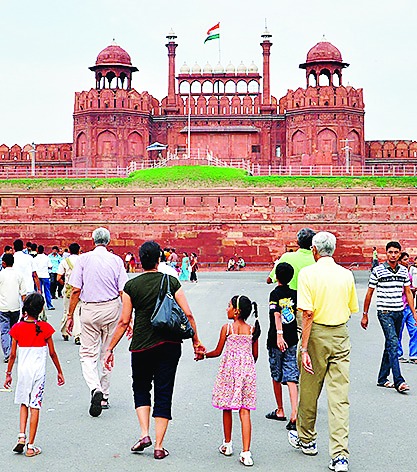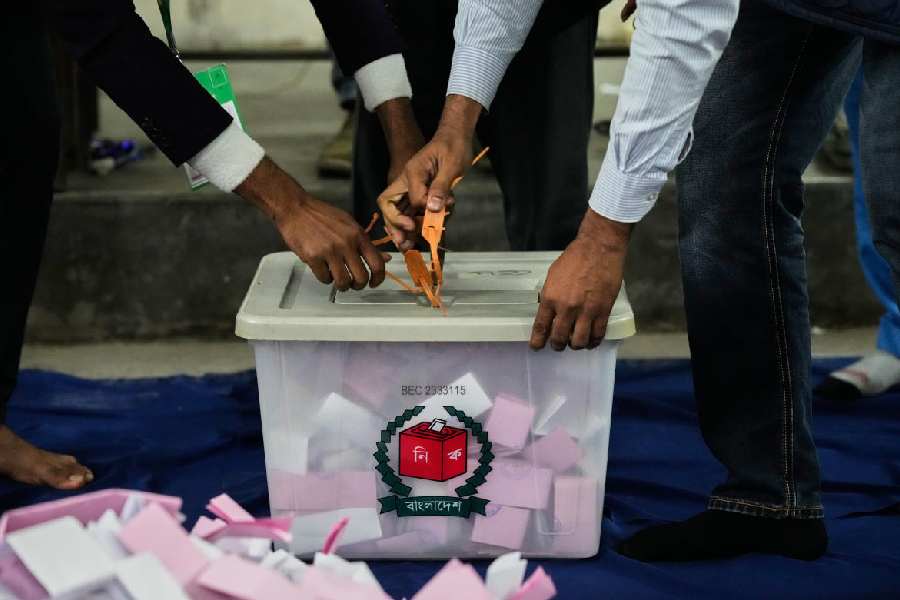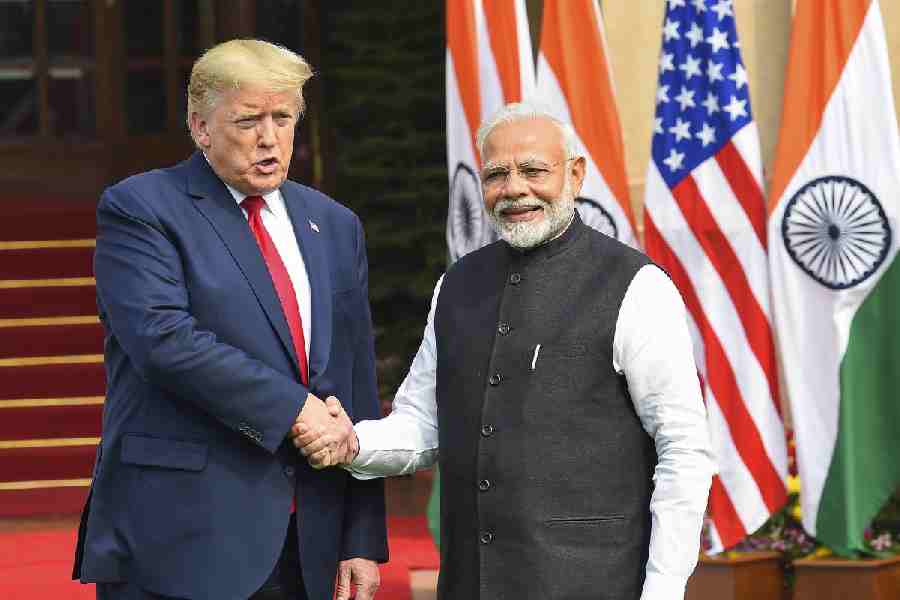
The basic facts of the controversy around the Jaipur Literary Festival's recent event at London's South Bank are as follows. Like other literature festivals such as Hay-on-Wye, and in the art world, Art Basel, the JLF has been expanding its 'brand' to go beyond its actual location and conduct festivals in different parts of the world. As in Jaipur, the organizers have sought and received the sponsorship of various companies and corporate groups, good, bad and downright ugly. In London, JLF's sponsors were the Vedanta group, famous or infamous, depending on your position, for ruthlessly expanding their mining operations across the world without letting any concern for local people or fragile ecological situations get in their way. Vedanta's sponsorship drew a response of wide protests on social media as well in the physical world, including activists storming the stage at the event, waving placards and raising slogans against the company and the festival which had taken their 'blood money'.
For many people the issue was simple. According to them, Vedanta are one of the worst international offenders in terms of bending local governments to their evil agendas, cruelly displacing local people, destroying local environments as they suck minerals from the ground, and then of disappearing from the scene, leaving behind vast, uninhabitable devastations. If Union Carbide and Bhopal were bad then Vedanta are a hundred times worse, and in much slower, relentless motion, and across many different parts of the vulnerable developing world. In short, no way should any self-respecting festival organizer be going anywhere near the toxically amoral group, their PR agenda of whitewashing their crimes, or their tainted money. And should a literary festival make the ghastly choice of associating with Vedanta, then no way should any self-respecting writer, intellectual or critic bring themselves to participate in a festival infected by Vedanta's earth-murdering cash.
For others, things were less black and white. One argument against a boycott or non-participation was laid out by Salil Tripathi (disclosure: he's a friend) who did participate in the JLF's South Bank event. Tripathi, who spoke at some length on the JLF stage about Vedanta's many vile misdemeanours asks, "Would my non-participation, and not speaking about it to an audience that did not know the issues, advance the cause of those denied their voice?" In this, Tripathi meant people like Priya Pillai and Gladson Dungdung, both of whom were not allowed to fly out of India to speak abroad about the devastation caused by international mining firms.
Another argument against the mode of protests chosen by the activists goes thus: of course there should have been protests but no one should have shouted down the speakers, some of whom were actually trying to speak up against Vedanta; these kinds of protests from the Left are too close to the hooliganism and threatening behaviour we've seen from the right-wing culture-vigilantes, whether they be VHP-RSS goons, or the kind of thuggish behaviour we saw in Jaipur in 2012, from the imam of the Jaipur mosque who came to the festival with his followers and demanded action 'upto martyrdom' from them to stop the video-link conversation with Salman Rushdie; in the current political environment, it's far too easy to shut down the spaces for debate and free expression and far too difficult to revive them, so a festival like the JLF has to be defended, even if you find the organizers and their amoral sponsorship politics odious. Some of the people making this argument conflate bans (whether by government edict, Hindutva-fatwa or Jamaati ailaan) with boycotts and protests, going on to say that all of these are equally and undifferentiably undesirable.
Though not exactly in this camp, Nilanjana Roy (another friend) raises two points: given the grossly hostile attitude to free speech and wider culture displayed by the governments of the Congress, the BJP and all our various local suspects, any cultural festival will need to look for private (read corporate) funding; if you want, you can find something wrong with almost any corporate entity, Zee TV, Tata, DSC, Coca-Cola, to name just a few recent sponsors of festivals, but where and how do you draw a line beyond which you will not go? So a 'black-list' of unacceptable companies? A 'white-list' of ones that are okay? And by implication, perhaps even a grey-list, which is context-dependent? How do you choose your funders? To which Roy adds, "'Those' protesters [the right-wing types] believe in the rightness and justice of their cause as much as 'these' protesters do. But writers have many ways to protest - to speak at the venue, to stay away, or, even, as Gabriel García Márquez did with the Banana Company in One Hundred Years of Solitude, make lasting art from their anger."
A Bombay friend who deals a lot with raising sponsorships is much more caustic about us writers. "You author-types are a joke," he chortles, "it's so sweet and naïve of you to think you can 'talk about the issues raised by a sponsor' while participating in an event paid for by that company. The PR guy who's paid for it will just laugh, he's got his bang-for-bucks return, he will just say 'ha, you need us to pay for the platform where you can raise issues against us' and carry on undaunted." Given my friend's proximity to the most brutal film and music industries in the world he continues not to mince words. "We all have 'no-no' tags on certain potential sponsors. It isn't Vedanta's fault, their PR team is just doing what they need to. The fault lies with the organizers who took their money. How can William Dalrymple or Namita Gokhale say they didn't know Vedanta was going to be the sponsor? And then, that the company hadn't ever been found guilty of anything? But none of you have the requisite body-parts to be able to call them liars, do you?"
As it emerges that Vedanta were not only this year's sponsors for JLF's London event but also the ones of last year's, that one of the main organizers fudged this fact to at least two authors attending, who raised this problem, by saying "Oh, they're only sponsoring the opening party" (apparently not true, apparently the Vedanta logo was all over the place throughout the event), one does have to wonder how much exactly the triumvirate running the JLF cares about who picks up the tab for the proceedings.
As with life and literature, in this little kerfuffle too, contradictions abound. Literature festivals need to take place and to be paid for, hopefully not by private citizens and individual readers of books, but by some corporate-individuality which has unseemly-to-obscene amounts of advertising moolah to spend. Writers and critics should be able to 'perform' at these festivals at 'face value', simply concentrating on the books and ideas they are supposed to discuss; yet nothing exists in a vacuum, especially not for intellectuals who claim to have some social conscience, and who are supposed to have some serious social analyses. To be able to freely protest is a basic human right - or should be - and the corollary is that there should be a myriad ways available, a plethora of acceptable forms, in which these protests can manifest themselves - to limit a method or a form is in itself a censorship; yet, violence should be unacceptable; yet again, one person's emphatic shouting down or drowning out of the other is another person's physical assault, so this is always going to be a tricky patch of quicksand.
Continuing with the contradictions. JLF in Jaipur is very different from the pop-up van of JLF-on-Thames. The first is an important festival in a city and country's calendar, where actually hundreds of thousands can, free of cost, avail themselves of literary discussion and debate, never mind that they can't all access the cocktails and meals where the grandees of the BJP and the Congress nuzzle each others glasses of bubbly, even as they conspire how to shut down free speech. The South Bank jamboree is a ticketed event and a different thing entirely - while JLF-Jaipur should be buffered, hopefully by public opinion, against chaos and anarchy, insurrectionary instinct suggests that no such protection need be afforded to any platform or event in the cosseted halls of the South Bank - if you buy a ticket to a show sponsored by a dodgy corporation know that you could have bought a ticket to rather fuller entertainment than you bargained for; if you don't like the heat, don't buy a ticket to the devil's kitchen.
As for the future of the JLF and other such festivals in India, a few concluding thoughts. Vedanta have perhaps done what they do - they've strip-mined JLF, they've extracted their PR profit, and now they will move on, leaving behind whatever damage for Jaipur, perhaps ameliorated by slatherings of financial balm. The fact is, arrogance and foolishness are diseases hard to leave behind - even as the controversy rages, one of the main organizers writes (about taking Vendanta's money): "[E]ven sinners are allowed into the temple." Leaving aside the sheer big-headedness of imagining JLF to be some kind of 'temple' (not to belabour the stupidity of equating Vedanta with some poor, individual 'sinner'), the answer to that is: they may be allowed to enter the temple, but they're not usually allowed to buy it. In any case, there's probably a queue, many sinners lined up to bid for the JLF temple, and we have to hope that the people in charge choose one that doesn't destroy the pile.











